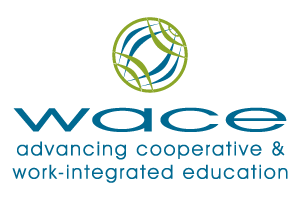GLOBAL QUALITY WIL FRAMEWORK
Purpose
WACE is committed to supporting the development of quality work-integrated learning experiences for all students globally. This Global Quality WIL
Framework provides guidance to institutions, host organisations and students before, during, and after the WIL experience. The Framework is drawn from a
range of global sources and was informed by advice from National WIL Associations. This Framework is intentionally designed to support diverse WIL
models in a broad range of contexts.
WIL Guiding Principles:
- WIL programs are structured to positively impact all participants, students, educational partners, and host organisations.
- WIL programs are centred on student learning.
- WIL programs are evaluated regularly to ensure that they meet the two principles above and are consistent, equitable, and effective.
- WIL programs are accessible to all students and appropriate external partners, and programs ensure barriers to access are removed.
- Global Quality WIL Framework (PDF)
|
Institution |
Host organisation |
Student |
|
Before |
||
|
Institutional leadership is committed to and supportive of work - integrated learning |
Host organisation leadership is committed to work -integrated learning |
Students are committed to undertaking work- integrated learning. |
|
Institution has a WIL strategy with associated governance structure and WIL goals are communicated to all stakeholders. |
Host organisation agrees to the goals of WIL and their role and responsibilities in enabling student learning is documented. |
Students understand the goals of WIL and their roles and responsibilities |
|
Institution provides WIL experiences which are authentic, inclusive, and accessible. |
Host organisation provides context for WIL experiences that are safe, inclusive, conducive to student learning and in line with all local legal requirements. |
Students are ready and prepared for their WIL experience |
|
Institution ensures WIL is supported by effective processes, systems, and legal and risk management frameworks. |
Host organisations provide orientation to students, ensuring WIL requirements are clear, and provides quality supervision. |
Students are provided support, when required, to access WIL experiences |
|
Institutions support the development of capability in WIL staff. |
Host organisation support and recognise supervisors. |
Students are provided WIL experiences that are connected to their learning, capabilities and future career goals. |
|
During |
||
|
Requirements for quality supervision of students are outlined to both host organisations and students. |
Supervisors ensure that student orientation is completed, students are welcomed and are in a safe environment. |
Students participate in orientation for their WIL context. |
|
Institution has a method for supporting the student setting of learning objectives and assessment of learning outcomes. |
Supervisors support students in setting achievable learning goals. |
Students are guided to set learning goals for their WIL experience |
|
Institution initiates additional contact if needed depending on context and student. |
Supervisors are accessible and provide the student constructive feedback throughout the WIL experience. |
Students are supported and monitored during their WIL experience. |
|
After |
||
|
Institution provides final assessment of students. |
Supervisor provides final assessment of student learning and student performance. |
Students complete required assessments and reflections on experience and learning goals. |
|
Institution provides processes for students to debrief and reflect on their learning. |
Supervisor provides constructive final feedback for students. |
Students reflect on their experiences to inform their own continuous improvement. |
|
Feedback from Host organisations is sought, and partnerships regularly reviewed based on feedback. |
Host organisations provide feedback on WIL experience and processes. |
Students provide engaged feedback on WIL experience and processes |
|
Feedback from students and host organisations is used to continuously improve WIL experiences, processes, and professional development. |
Host organisations use feedback provided by the Institution to improve WIL experiences and processes. |
Students are made aware that feedback provided is informing continuous improvement. |
References:
Walker-Martin, F., Flynn, S., & Siva-Jothy, D. (2022). ASET good practice guide for work based and placement learning in higher education.
Campbell, M., & Pretti, T. J. (2023). Quality indicators of work-integrated learning. In K. E. Zegwaard & T. J. Pretti (Eds.), The Routledge international handbook for work-integrated learning (3rd ed., pp. 342-360). Routledge.
Campbell, M., Russell, L., Thomson, K., Tunny, R., Smith, L., & McAllister, L. (2019) A framework for the institutional quality assurance of work integrated learning. Australian Collaborative Education Network.
https://drive.google.com/file/d/13Voqe_rqb0MMpYNC1BGs3MpBMtudKy5n/view
Campbell, M., Russell, L., Thomson, K., Tunny, R., Smith, L., & McAllister, L. (2021). The construction and testing of a framework to assure the institutional quality of work-integrated learning. International Journal of Work-Integrated Learning, 22(4), 505-519.
SASCE (2000) Best Practice Guide in Co-operative Education South African Society for Co-operative Education. Southern African Society of Cooperative Education. SASCE
https://docs.google.com/document/d/1ZCvvJs13hrgLMuFhYV4N5CzOLwtQRWXHK2n-6f_pojU/edit?usp=sharing
Fenton, D. (in press). Interpreting quality work-integrated learning: Defining common principles of work-integrated learning with a systematic literature review. Ontario Institute for the Studies in Education at the University of Toronto.
Khampirat, B., Mc Rae, N. (2016) Developing global standards framework and quality integrated models for cooperative and work-integrated education programs. Asia-Pacific Journal of Cooperative Education, 17(4), 349-362
McRae, N, Pretti, T.J., & Church, D. (2018). Work-Integrated Learning Quality Framework. University of Waterloo.
WILNZ. (2023). Quality evaluation guidelines for work-integrated learning. WILNZ. https://wilnz.nz/
Winchester-Seeto, T. (2019). Quality and standards for work-integrated learning. Australian Government Department of Education and Training.
Winberg, C., Engel-Hills, P., Garraway, J., & Jacobs, C. (2011). Work-integrated learning: Good practice guide. Council on Higher Education. https://www.che.ac.za/sites/default/files/publications/Higher_Education_Monitor_12.pdf
